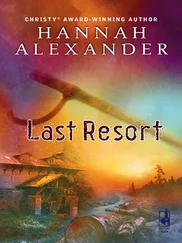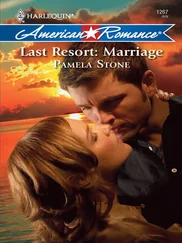Mom had said Barbie’s romantic ideas were irrelevant. For better, for worse, her place was with her husband; it was in the Bible. It was her job to be her husband’s helpmate, especially in politics, where the wife was an important part of the public image. But probably she wouldn’t be of any help to Bob’s image anyhow, Barbie thought. She’d mess up again somehow, and make things worse for him, and everybody would be angry at her just like they always were.
“Hey, Barbie. If you’ve seen enough, why don’t you go with Mumsie and get something to drink?” Jacko asked. “I’ve got to negotiate for some plants. There’s soda and stuff over there, under that big banyan.”
“Okay,” she agreed listlessly; she had seen enough long ago. Like some lovers of animals (not including Wilkie Walker), Barbie had no particular love of plants. For her they were merely habitat and fodder; it was important that they be preserved to ensure the survival of mammals and birds, but they were without intrinsic interest. Many of the orchids on display looked kind of creepy to her, with their twisted and tasseled shapes, their quivering antennae, their thick, fleshy petals, their peculiar colors: neon purple, chartreuse, beefsteak.
“Oh, this is all so glorious, isn’t it?” Aunt Dorrie murmured a few minutes later, sinking onto a bench with a paper cup of iced tea. The sun filtered through her green hat, giving her pretty, worn features a plantlike hue.
“Uh-huh,” Barbie managed. She took a gulp of Coke.
“Glorious,” Dorrie repeated. She gazed slowly round at the exotic foliage and the equally exotic clothes of several other visitors. “You know, dear, I’ve been so unhappy about Perry. But now I know he’s going to be all right, whatever happens. I’ve been praying about it so hard, and finally last night I just put everything in the hands of Jesus and I told him, now it’s up to you. And when I saw that beautiful big golden orchid back there, it was like a promise. It could even be that the doctors are going to find a cure in time for Perry.”
“Um-hm,” Barbie muttered. She had prayed a lot too, off and on, ever since she was a little kid, and a couple of times she had tried to put her life into the hands of Jesus, but it had never worked out. The nearest she came was once when she was fifteen, in the new Baptist church her friend Nancy went to. The organ was playing and the sun was shining through the pink and green windows. Everybody was praying and swaying, and the minister was calling them to come forward and give their lives to the Lord.
Barbie tried, but she couldn’t move into the aisle. She couldn’t get past the idea that the Lord didn’t want her life. “His eye is on the sparrow,” they were singing, “and I know He watches me.” But the way it always seemed to Barbie, it was like the Lord’s eye might be on her, but he didn’t care all that much for what he saw. He wouldn’t give a hoot if she drowned tomorrow morning, because she wasn’t any use in the world anyhow.
“I’ve got the plants, Mumsie,” Jacko said, coming up to them. “I’m going to load up the truck now.”
“I’ll help, darling.”
“No, you sit right here. Or look around some more, if you like. Barbie’ll help me.”
Outside in the sun it was hotter than ever. Because of the crowd, Jacko had had to park far down the beach road. By the time he and Barbie, heavily loaded with plants and pots and bags of orchid food, reached his truck, they were sweating and irritable.
“Hey, not that way!” he cried as she began to lift a heavy plastic tray of cuttings; but he spoke too late. Startled, Barbie let the plants slide sideways, and some fell onto the pavement and broke.
“Jesus, what a moron.”
“I’m sorry,” she gulped.
“Yeah.” Jacko repacked the tray, lowered the tailgate, and slid it in. Then, breathing hard, he leaned against the truck.
“Gee, Perry, you look awful,” Barbie told him tactlessly. “You know what Mom says, she says the kind of work you do isn’t good for a sick person, outside all the time in the hot sun, in this damp climate, that’s what she says.”
“Oh, does she,” Jacko half-gasped.
“Um-hm. She thinks you ought to sell your property and move back to Tulsa.”
“Yeah, that’s what she told me. So what do you think?”
“I d’know,” she replied, confused. “Mom says—”
“Oh, fuck it,” Jacko interrupted. “You know what you are, Cousin Boobie, you’re nothing but a mouthpiece.”
“What?” Barbie said stupidly. She knew what a mouthpiece was, there was one on the trumpet she played in her high school band, when they marched onto the field at football games. She had a pretty red costume with gold braid and fringed epaulets, and most of the time she didn’t even make any mistakes. For years afterward she kept her trumpet in its case lined with green plush on the top shelf in her closet, and sometimes when there was nobody else in the house she would take it down and blow a tune. “What d’you mean?”
“I mean Aunt Myra writes all your lines,” Jacko said. “God. You don’t know anything.”
“Well, you don’t know so much yourself,” Barbie told him, choking back angry tears. His scornful expression, familiar since childhood, urged her on. “Like for instance you think Mom wants you to come to Tulsa so you can get well. She doesn’t care anything about that, she just wants to get ahold of your property, so she can give it to the Republican party.”
“Don’t be stupid,” Jacko said, ignoring Barbie’s tears, which he had seen so often. “I’m not going to give Alvin’s house to Aunt Myra.”
“No,” Barbie insisted, still sobbing. “But she figures that you’ll die and leave everything to Aunt Dorrie, and Mom can get anything out of her. She always has.”
“You don’t know what you’re talking about,” Jacko said, but his expression was uneasy.
“I do too,” Barbie gulped. “Like why do you think Aunt Dorrie traded in her house for that little nothing condo out by the mall? That was Mom’s idea, when she needed money for Bob’s campaign.”
“Hold on.” Jacko mopped his face with a green bandanna. “You’re saying Myra made Mumsie sell our house?”
“Uh-huh.”
“How come she didn’t sell her own house?”
“Aw, she couldn’t do that. She needs it for fund-raisers and receptions. Aunt Dorrie’s place was no good for parties, it was too far out in the country.”
For nearly a minute, Jacko said nothing. “Great,” he finally managed. “Just great. Well, thanks for telling me.” He slammed the tailgate shut, then frowned. “Hey, what happened to that other cattleya I just bought?”
“Huh?”
“That big white orchid with the orange center. The one I gave you to carry.”
“I d’know.” Barbie looked listlessly along the line of parked cars. “I guess I didn’t bring it.”
“Aw, shit,” Jacko said. “You really are totally useless. Okay, you wait right here.” Half running, half walking, he set off down the street.
For a moment Barbie followed his instructions; then, beginning to weep again, she stumbled slowly away along the beach road in the other direction, for no reason except the need to escape from Jacko’s accusations and her continuing misery, and a vague idea of drowning herself and all her troubles in the sea.
The sun shone, the warm wind blew, the water shimmered deep violet and a clear, pale, liquid green, but Barbie saw none of this. She halted only when an obstacle appeared in her path, in the form of a folding table piled with books and pamphlets, and a hand-painted placard in large green letters:
SAVE THE MANATEE
Snuffing back tears, she stood and stared at this apparition, and then at the young man who sat behind the folding table on a folding chair, in the shade of a coconut palm. He had crimped yellow hair, a large sunburned nose, and dark sunglasses.
Читать дальше












